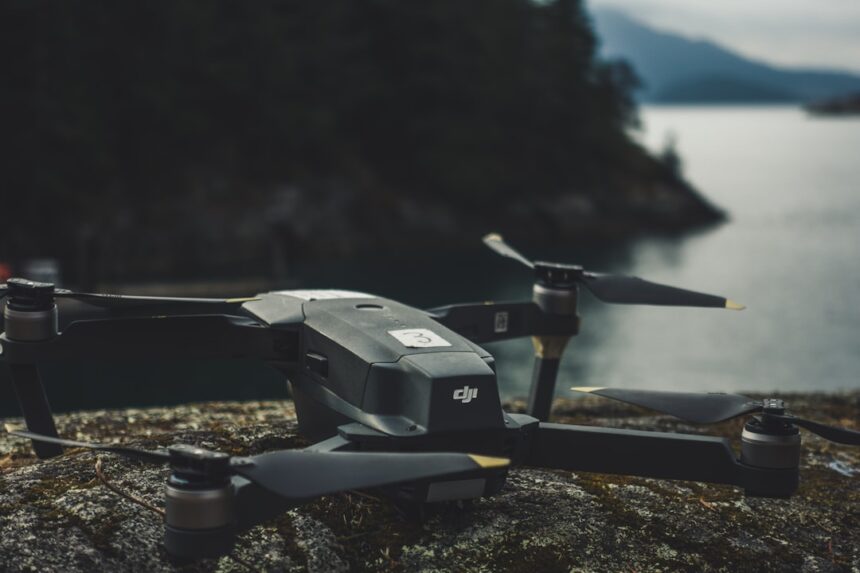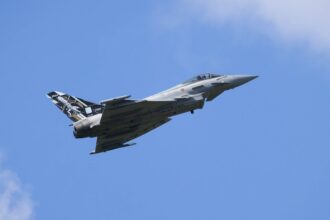Drone warfare has emerged as a transformative force in modern military operations, fundamentally altering the landscape of conflict. The advent of unmanned aerial vehicles (UAVs) has provided military forces with unprecedented capabilities, enabling them to conduct surveillance, reconnaissance, and targeted strikes with remarkable precision. This shift towards drone warfare has not only changed the way wars are fought but has also raised significant questions about the implications of such technology on international relations, military ethics, and the nature of warfare itself.
As nations increasingly adopt drones as a central component of their military arsenals, understanding the complexities of drone warfare becomes essential for comprehending contemporary conflicts. The integration of drones into military strategies has been driven by the need for efficiency and effectiveness in combat operations. Drones offer a unique advantage by allowing for real-time intelligence gathering and the ability to engage targets without risking human lives in the cockpit.
This capability has made them particularly appealing for counterterrorism operations and asymmetric warfare, where traditional military forces face non-state actors. However, the rise of drone warfare is not without its challenges and controversies, as it raises critical questions about accountability, civilian casualties, and the potential for misuse of power.
Key Takeaways
- Drone warfare has revolutionized modern military operations, offering both advantages and disadvantages.
- Case studies of drone battlefield operations highlight the effectiveness and limitations of drone technology in warfare.
- Drones have significantly impacted military strategy, leading to changes in tactics and decision-making processes.
- Ethical and legal considerations surrounding drone warfare raise important questions about the use of force and civilian casualties.
- Technological advancements in drone warfare continue to shape the future of military operations, with implications for training and preparation.
Advantages and Disadvantages of Drones in Warfare
The advantages of drone warfare are manifold, making them an attractive option for military planners. One of the most significant benefits is the ability to conduct operations with minimal risk to personnel. Drones can be deployed in hostile environments where manned aircraft would face considerable danger, allowing for missions that would otherwise be deemed too risky.
Additionally, drones can loiter over target areas for extended periods, providing continuous surveillance and intelligence that can inform tactical decisions on the ground. This capability enhances situational awareness and allows for more precise targeting, potentially reducing collateral damage. However, the use of drones in warfare is not without its drawbacks.
One major concern is the potential for civilian casualties, which can occur when drones misidentify targets or when strikes are conducted in densely populated areas.
Furthermore, the reliance on drones may lead to a detachment from the realities of war, as decision-makers may be more inclined to authorize strikes without fully considering the human consequences.
This disconnection raises ethical questions about the nature of warfare and the responsibilities of those who wield such technology.
Case Studies of Drone Battlefield Operations

Several case studies illustrate the evolving role of drones in battlefield operations, highlighting both their effectiveness and the challenges they present. One notable example is the United States’ use of drones in Afghanistan and Pakistan as part of its counterterrorism strategy. The CIA’s drone program has targeted high-profile militants, resulting in significant operational successes.
However, these strikes have also drawn criticism due to reports of civilian casualties and the lack of transparency surrounding the program. The complexities of these operations underscore the need for a careful balance between military objectives and ethical considerations. Another compelling case study is Israel’s use of drones in its military operations against Hamas in Gaza.
The Israeli Defense Forces have employed drones for surveillance and targeted strikes, showcasing their effectiveness in urban warfare scenarios. While these operations have achieved tactical advantages, they have also sparked international debate regarding the legality and morality of such actions. The ongoing conflict illustrates how drone warfare can complicate traditional notions of combat and raise questions about proportionality and discrimination in targeting.
Impact of Drones on Military Strategy
| Metrics | Impact |
|---|---|
| Surveillance | Enhanced ability to gather real-time intelligence |
| Targeted Strikes | Ability to conduct precise and targeted attacks |
| Logistics Support | Efficient delivery of supplies and equipment to remote locations |
| Reduced Risk | Minimization of human casualties in certain operations |
| Counter-Drone Measures | Development of strategies to counter enemy drone threats |
The integration of drones into military strategy has led to a paradigm shift in how conflicts are approached and executed. Traditional military doctrines that relied heavily on ground forces and manned aircraft are being re-evaluated in light of drone capabilities. Commanders now have access to real-time intelligence that can inform decision-making processes, allowing for more agile and responsive operations.
This shift has also prompted militaries to invest in developing counter-drone technologies to protect against potential threats posed by adversaries employing similar tactics. Moreover, the use of drones has influenced the nature of warfare itself, blurring the lines between combatants and non-combatants. As drones enable states to engage in conflicts without deploying large numbers of troops, they can create a sense of distance from the battlefield.
This detachment may lead to a more permissive attitude towards the use of force, as decision-makers may perceive drone strikes as less consequential than traditional military engagements. Consequently, this evolution in military strategy necessitates a reevaluation of rules of engagement and accountability mechanisms to ensure responsible use of drone technology.
Ethical and Legal Considerations of Drone Warfare
The ethical and legal implications of drone warfare are complex and multifaceted. One primary concern is the issue of accountability for civilian casualties resulting from drone strikes. The lack of transparency surrounding many drone operations complicates efforts to assess their legality under international law.
Critics argue that the use of drones can violate principles of proportionality and distinction, which are fundamental tenets of international humanitarian law. The challenge lies in ensuring that military objectives do not come at the expense of civilian lives and that those responsible for unlawful strikes are held accountable. Additionally, the psychological impact on both operators and affected populations raises ethical questions about the nature of remote warfare.
Drone operators often work from bases thousands of miles away from conflict zones, which can create a disconnect between them and the realities of their actions. This detachment may lead to desensitization towards violence and a diminished sense of responsibility for the consequences of their actions. On the other hand, civilians living under constant drone surveillance may experience heightened anxiety and fear, leading to long-term psychological effects that extend beyond immediate casualties.
Lessons Learned from Drone Battlefield Operations

The experiences gained from drone battlefield operations have yielded valuable lessons that can inform future military strategies. One key takeaway is the importance of integrating drones into a broader operational framework that includes ground forces and intelligence assets. While drones provide significant advantages in terms of surveillance and precision strikes, they are most effective when used in conjunction with other military capabilities.
This holistic approach ensures that commanders have a comprehensive understanding of the battlefield environment and can make informed decisions based on a variety of inputs. Another lesson learned is the necessity for robust oversight mechanisms to address ethical concerns associated with drone warfare. Establishing clear guidelines for targeting decisions, accountability for civilian casualties, and transparency in operations can help mitigate some of the criticisms surrounding drone use.
Furthermore, engaging with international legal frameworks can provide a foundation for responsible drone operations that respect human rights and uphold humanitarian principles.
Technological Advancements in Drone Warfare
Technological advancements continue to shape the evolution of drone warfare, enhancing their capabilities and expanding their applications on the battlefield. Innovations in artificial intelligence (AI) and machine learning are enabling drones to process vast amounts of data more efficiently, improving target recognition and decision-making processes. These advancements allow for greater autonomy in drone operations, raising questions about human oversight and accountability in lethal decision-making.
Moreover, developments in drone swarm technology are revolutionizing military tactics by enabling multiple drones to operate collaboratively in complex environments. Swarm tactics can overwhelm enemy defenses, conduct coordinated strikes, or gather intelligence more effectively than individual drones operating independently. As these technologies advance, militaries must grapple with the implications for strategic planning, operational execution, and ethical considerations surrounding autonomous systems.
Psychological and Societal Impacts of Drone Warfare
The psychological effects of drone warfare extend beyond immediate combatants to encompass entire communities affected by drone operations. For civilians living under constant surveillance or threat from drone strikes, the psychological toll can be profound. Reports indicate that individuals in conflict zones experience heightened levels of anxiety, depression, and post-traumatic stress disorder (PTSD) due to the persistent fear associated with drone presence.
This psychological impact can hinder social cohesion and contribute to long-term instability within affected regions. Additionally, the societal implications of drone warfare are significant as they reshape perceptions of conflict and power dynamics between states and non-state actors. The ability to conduct remote strikes without direct engagement can embolden states to pursue aggressive policies while diminishing accountability for their actions.
This shift may alter public perceptions of war, leading to a normalization of violence conducted from afar and potentially desensitizing societies to the consequences of armed conflict.
Training and Preparation for Drone Battlefield Operations
As drone warfare becomes increasingly central to military operations, training programs must evolve to prepare personnel for this new reality. Effective training should encompass not only technical skills related to operating drones but also an understanding of ethical considerations and legal frameworks governing their use. Operators must be equipped with knowledge about target identification processes, rules of engagement, and strategies for minimizing civilian harm during operations.
Training programs should emphasize communication skills and teamwork to ensure that operators can effectively integrate drone capabilities into broader operational plans. By prioritizing comprehensive training that addresses both technical proficiency and ethical considerations, militaries can better prepare personnel for the complexities associated with drone warfare.
Future Implications of Drone Warfare
The future implications of drone warfare are vast and multifaceted as technological advancements continue to reshape military capabilities. As more nations develop their own drone programs, there is potential for an arms race in unmanned systems that could destabilize global security dynamics. The proliferation of drones may empower non-state actors as well, enabling them to conduct asymmetric warfare against conventional forces with greater efficacy.
Moreover, as autonomous systems become more prevalent in military operations, ethical dilemmas surrounding decision-making processes will intensify. The question of whether machines should be entrusted with life-and-death decisions remains contentious, necessitating ongoing discussions about accountability and oversight in autonomous warfare scenarios. As militaries navigate these challenges, it will be essential to establish international norms governing the use of drones to ensure responsible practices that prioritize human rights and humanitarian principles.
Conclusion and Recommendations for Future Drone Battlefield Operations
In conclusion, while drone warfare presents significant advantages in terms of operational efficiency and precision strikes, it also raises critical ethical, legal, and psychological concerns that must be addressed proactively. To ensure responsible use of this technology in future battlefield operations, several recommendations emerge from the analysis presented throughout this article. First, establishing robust oversight mechanisms is essential to hold military personnel accountable for their actions during drone operations while minimizing civilian casualties through transparent targeting processes.
Second, integrating comprehensive training programs that encompass technical skills alongside ethical considerations will better prepare operators for the complexities associated with drone warfare. Finally, fostering international dialogue on norms governing drone use will be crucial as nations navigate an increasingly complex security landscape shaped by technological advancements. By prioritizing responsible practices rooted in humanitarian principles, militaries can harness the potential benefits offered by drones while mitigating their risks on both local communities and global stability.
In the rapidly evolving landscape of modern warfare, drones have become a pivotal element, offering both strategic advantages and new challenges. The article “Lessons from the Drone Battlefield” delves into the tactical insights gained from recent conflicts where drones played a crucial role. For a broader understanding of the implications of drone technology in military strategy, you might find the related article on In The War Room insightful. This piece explores the integration of drones into traditional military frameworks and the future of autonomous warfare, providing a comprehensive view of how these unmanned systems are reshaping the battlefield.
FAQs
What are the key lessons learned from the drone battlefield?
The key lessons learned from the drone battlefield include the importance of accurate intelligence, the need for effective counter-drone technology, the ethical and legal considerations of drone warfare, and the impact of drones on modern warfare tactics and strategies.
How has drone technology impacted modern warfare?
Drone technology has significantly impacted modern warfare by providing new capabilities for intelligence gathering, surveillance, and precision strikes. Drones have also changed the dynamics of warfare by enabling non-state actors to engage in asymmetric warfare and by raising ethical and legal questions about the use of unmanned aerial vehicles in combat.
What are the ethical and legal considerations of drone warfare?
The ethical and legal considerations of drone warfare include concerns about civilian casualties, the use of targeted killings, and the implications of remote warfare. There are ongoing debates about the legality of drone strikes in international law and the ethical implications of using unmanned aerial vehicles for military purposes.
What are the challenges and opportunities of counter-drone technology?
The challenges of counter-drone technology include the difficulty of detecting and intercepting drones, as well as the potential for collateral damage when attempting to neutralize hostile drones. However, there are also opportunities for innovation in developing effective counter-drone systems to mitigate the threats posed by unmanned aerial vehicles in conflict zones.
How has the use of drones influenced modern warfare tactics and strategies?
The use of drones has influenced modern warfare tactics and strategies by providing new options for reconnaissance, surveillance, and targeted strikes. Drones have also changed the way military forces conduct operations, adapt to evolving threats, and navigate the complexities of asymmetric warfare in the 21st century.




